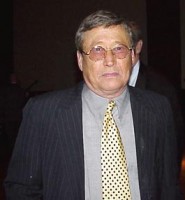Creative Writing 101

(for previous installments in this series, click here)
WORK DISCUSSED THIS WEEK: “Ancestral Legacies,” “On the Subject of Fiction Based on Non-Ficton,” and “The Gun Lobby” – all by Jim Shepard.
My goal for this week was to give the class another sense of the scope of writerly possibility. This time, instead of pairing different mediums of writing or organizing some little squad of unrelated writers together around a common theme, I chose to showcase two very different works of fiction by the same writer. “Ancestral Legacies” is historical fiction, and follows two Nazis on a pseudo-scientific mission to Tibet. (Himmler has ordered them to trace the path of a legendary Aryan ur-language; believing Himmler’s claims to be nonsensical, but their own to be legitimate, they’ve taken his funding and are using it to conduct their own research into the existence of the yeti.) “The Gun Lobby” is about a suburban marriage falling apart–the wife has taken the husband hostage in their home.
The biggest surprise came first– large factions of the class didn’t like “Ancestral Legacies.” They thought it moved too slowly, and was “boring.” I couldn’t believe this. Nazis! Tibet! Yeti! And they were “bored…”
Not tonight, darling. I have to finish this John Vanbrugh play. And, uh, I have a headache
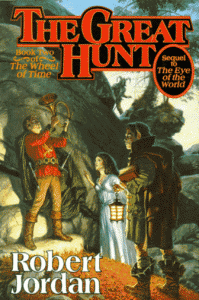 I imagine that I’m not the only one that carries around up to half a dozen books with them everywhere they go, at all times. I really hate having any kind of down time with nothing to read. Doctor’s office, in line at Walgreens, on my way to sell books at the Strand, less exciting moments in foreign movies I’m watching, or for when my lady friend is watching Top Chef. Whatever. One of the few I was lugging along on the train today—Crossing to Safety by Wallace Stegner (which is pretty great so far, fyi)—had an interesting passage that got me to thinking about the previously unconsidered victims of my solipsistic and obsessive habits.
I imagine that I’m not the only one that carries around up to half a dozen books with them everywhere they go, at all times. I really hate having any kind of down time with nothing to read. Doctor’s office, in line at Walgreens, on my way to sell books at the Strand, less exciting moments in foreign movies I’m watching, or for when my lady friend is watching Top Chef. Whatever. One of the few I was lugging along on the train today—Crossing to Safety by Wallace Stegner (which is pretty great so far, fyi)—had an interesting passage that got me to thinking about the previously unconsidered victims of my solipsistic and obsessive habits.
“You must have brought something. Books? I never saw you without a green bag of books.” To her mother she says, “He reads everywhere—in the subway, between the acts at plays, at intermissions in Symphony Hall, on picnics, on dates.”
This speech conveys considerable information to Aunt Emily. She watches Sid’s eyes close in mock agony, while a really very engaging smile takes over from the sheepishness on his face. “Well, there’s so much to read, and I’m so far behind. Everybody’s read ten times more than I have.”
“What did you bring?” Charity asks. “Restoration dramas?”
“I’m taking a rest from those. I’ve just got some hole-fillers. Middlemarch, The Idiot, things like that, novels I should have read but haven’t.”
When is it okay to bring along books, and when is it not? Dinner parties? The bar? Bar Mitzvahs? Sporting events? Sporting events where your team sucks and them losing is a foregone conclusion but you still want to tacitly show your admittedly wavering support? Please advise.
Manhattan Gets All Worked Up on Adderall
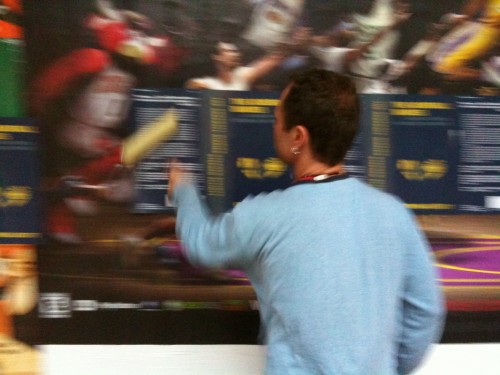
Stephen Elliott leads an Adderall Diaries wheatpasting campaign in what appears to be the East Village, yesterday, accompanied by Karan Mahajan and Alina Simone. New Yorkers, Don’t forget: Elliott reads at the Happy Ending Series at Joe’s Pub on Wednesday, 10/7, and the official release party, sponsored by n+1, is at Bookcourt on 10/8. Non-New Yorkers, be aware: Stephen is doing a massive tour for this book. Virginia? Arkansas? Seriously. If you feel like you live somewhere where nobody ever comes to read, this might just be the exception that proves your rule. Full tour schedule here.
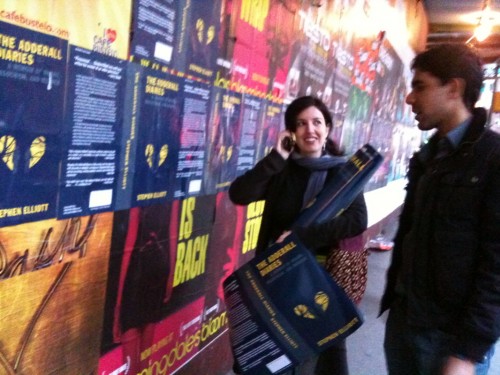
After the jump, some more highlights from the expedition.
My favorite book cover ever
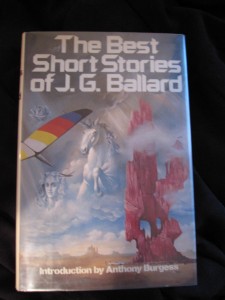
That, friends, is a fucking cloud unicorn.
Jacket art is an interesting thing. Besides blurbs, it’s one of the factors that most influences your casual, agendaless bookstore browser (as well as your rating on Jimmy Chen’s list, or so I like to believe). It is with this in mind that I’d like to share with you the greatest piece of cover art ever made. I came across this Kosygin-era collection of Ballard short stories last week while buying flannel in a thrift store, and I haven’t even really been able to get past the cover yet to start reading the stories. Besides the cumulo nimbus unicorn and rose and torso-less cloud lady, there is also a jauntily colored glider flitting around that mighty rock formation to the right. Directly underneath that monolith is what looks like some kind of Dodge Dart that probably gets 13 miles to the gallon and two people talking, probably about the Jets and their improbable 3-0 start (Ballard was something of a futurist, after all). Actually, you probably can’t see that part, due to the poor quality of my photography skills. How does it all tie together? Knowing Ballard, probably with the unicorn partially dismembered and violated.
JGB: Gone too soon.
Creative Writing 101


[ WORK DISCUSSED: Tuesday (9/22) – Adrienne Rich, five poems and an essay. Thursday (9/24) – “New York” by Tony Towle; “Texas” by Padgett Powell; “Babalu-Aye” by Eva Talmadge;” writing exercise.]
I never know how to start the class off. Or anyway that’s how it feels. I usually arrive in the room a few minutes early, and start chatting with whoever else is already there. If there’s a conversation already in progress I’ll try to join it, and if they’re all just sitting around quietly I’ll pick someone and ask how his or her day is going, or how the weekend was. If they throw the question back at me (“and how about you?”) I’ll tell them. I try to take attendance right at the official start time, not so much to punish the stragglers as to reward those who got there early. I want them to see me seeing the effort they’ve made. So we do that, and it’s like–now what? “Okay,” I often find myself saying, “what did we read for today?” It’s not that I can’t remember what we read. It’s just that I think there’s something useful about saying it out loud. I asked the class if they preferred to talk about the poems or the essay first. A few people kind of said “poems,” so I said okay, but then there was another choice to be made–which poem? One of the pitfalls of my teaching style (which strives to be dynamic, responsive, and rigorously un-structured) is that it’s hard to get off the ground. It’s like an old prop plane, where you need to start the propellers spinning by hand and then sort of guide it down the runway and hope everything is timed just right and take-off actually happens. Sometimes this takes a few tries. Nobody seemed to care where we started, and consequently we weren’t starting at all.
The Insertion of Money Where the Mouth Is
TriQuarterly is moving online and/or ceasing publication depending on who you ask. It is a real shame to see such a fine publication being forced into this transition. I’ve noticed a lot of garment rending, lament and outcry, but how many of us subscribe? Every time a small press or magazine announces it’s going to close or is on the verge of closing, the Internet immediately begins frothing about the loss to arts and letters but as someone who works behind the scenes and knows how few of us actually subscribe to literary magazines, I have to wonder about the hypocrisy of it all. People say they can’t subscribe to every journal or that they can’t afford to subscribe or they don’t believe in acquiring things or a wide range of other excuses but still, people really appreciate the work We appreciate your appreciation but we like and need your money more. What magazines are you subscribing to these days? Do we have a right to express our outrage about the “state of publishing” if we’re part of the problem?
Red Light District
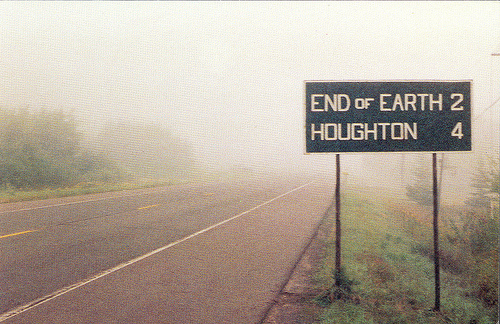
My name is Roxane Gay (with one n).
My middle name is not “is.” I do not have a middle name.
I know I don’t have to turn on the red light.
I know you want to be my man.
I am not the rapper Roxanne Shanté though her sweater is lovely.
I write, I edit (check out that swank new site design by Gene Morgan), I am writing my dissertation, I teach, I am on the job market. I live near the end of the world in Michigan’s Upper Peninsula. Blake Butler was kind enough to ask me to join the team so here I am to bring the estrogen (not really) which is much like bringing the pain, only better smelling.
Creative Writing 101

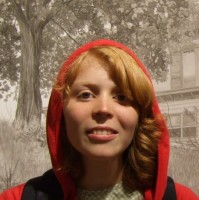

For Thursday (9/10) we read “My Dog is a Little Obese” by Ellen Kennedy, “How to Date a Browngirl, Blackgirl, Whitegirl or Halfie” by Junot Diaz, and “To His Coy Mistress” by Andrew Marvell. The theme was DIRECT ADDRESS and INSTRUCTION. As on Tuesday, we spent most of the time on the fiction piece. I think this is because fiction feels “easier” to talk about than poetry, like you’re not going to screw up the technical terms or something. And I think that having a teacher who is primarily a fiction writer contributes to this atmosphere, so I’m going to work harder in the future to check myself. But I think there’s a second reason as well, which is that a relatively straight prose narrative like the Diaz story (or Hemingway last week) yields itself to a kind of knee-jerk cultural studies reading, where the text is really just a pre-text for the themes and politics it evinces or brings to light. Especially with a piece like this one by Diaz, where the narrator is giving “you” instructions on how to re-arrange your apartment so you don’t look as poor as you are, and then impress the various girls you might have invited over, with particular race-based instructions for each one. I hate this way of reading.


